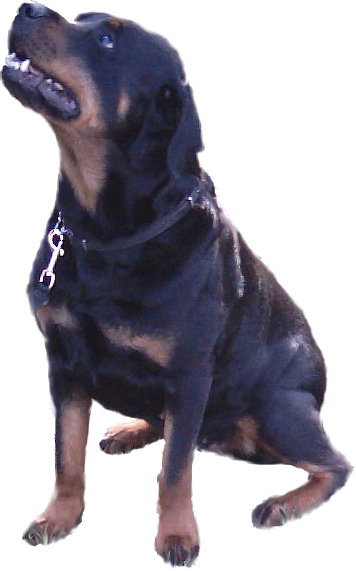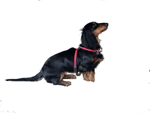Introduction |
||||
|---|---|---|---|---|
|
Back to
|
|
|
|
|
|
Research on Dog Cognition Prof. Dr. Catholijn M. Jonker (MMI-depart. Delft Univ. of Technology), Dr. Tibor Bosse (AI dept. Vrije Universiteit Amsterdam), and International Behavioural Therapeutic Centre “De Roedel” initiated a long term research programme on dog cognition. The research is based on a set of aspects that are important to the method developed by International Behavioural Therapeutic Centre “de Roedel” to improve the relation between handler and dog. Over the years MSc. Arjen van Alphen, Francien Koeman, dog behaviour therapists have spent much time on empirical research. Coming in contact with Prof. Dr. Catholijn Jonker they discovered a mutual interest in cognitive behaviour. Prof. Dr. Catholijn Jonker and her colleague Dr. Tibor Bosse are researchers in the field of Artificial Intelligence, with an interest in understanding and modelling cognition and how to incorporate that into software agents. MSc. Arjen van Alphen and Francien Koeman as dog behaviourists have an interest in a better understanding of dog cognition to improve dog-handler therapy. Topics of the research are:
The aim of the research involves a better understanding of dog behaviour thus supporting improvements in dog education methods. We confirm that every effort will be made to ensure that studies will not result in pain or suffering of participating animals as a result of this research. - 2006 - Currently Manou Plattje, a college student, is researching different aspects of the Dog Cognition project; the first is the correlation between the inclination to move forwards, measured in the number of forward movements of the dog in relation to the leg which the handler uses to start walking. The hypothesis is that dogs will show more inclination to follow the handler when the handler starts walking with the left leg and more inclination to stay when the handler starts walking with the right leg. The basis for this behaviour lies in observed bhaviour of the litter, where the puppies seem to learn this from their mother. The research team chose this hypothesis because of its double implication. If this behaviour can indeed be observed, it not only suggests that this behaviour is present in the pup when it leaves the litter, but also that this behaviour is transferred from dog-dog interaction to dog-human interaction. - 2005 - Publishing the paper and article “Paw Preference Correlates to Task Performance in Dogs” and presenting the article on the Cognitive Science Conference in July in Italy. 2002 - 2004 The research team supervised two master-students in Computer Science (Ildiko Frank) and Artificial Intelligence (Onno Kubbe) in a research effort with two purposes: to study the correlation between paw preference and task performance, and to do the initial field studies for future research questions. The team statistically verified that paw preference of dogs is indeed correlated to task performance in a specific search task. MSc. Ildiko Frank did her share in running the test dates, gathering the data, observing the data, and processing the data. Onno Kubbe created the website and made sure that the video material was made available on the computer. The whole team plus a number of volunteers made sure the experiments were performed and filmed. |
||||
|
|
|
|
|
|
|
|
|
|

